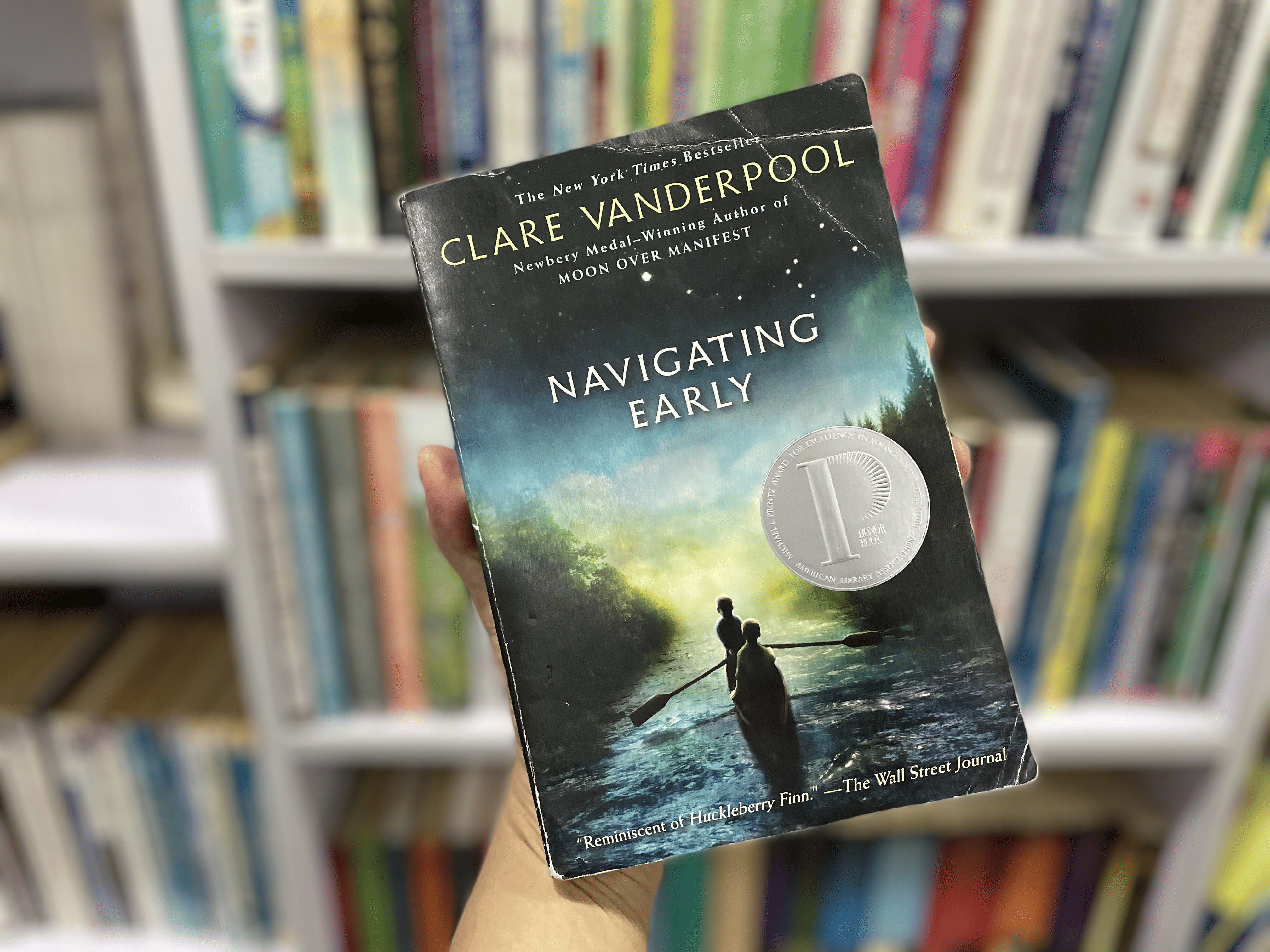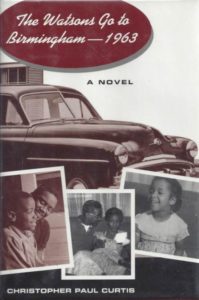I remember going to the bookstore years ago without a booklist. I didn’t have any title or book in mind, but I knew that I wanted something different… something that would be out-of-this-world good. And boy, did I find a gem in Navigating Early! Clare Vanderpool doesn’t just write… she crafts magically mesmerizing stories that just leave your heart so very full. She won the Newbery Medal for her debut, Moon Over Manifest, but Navigating Early is my favourite.
It is post-World War 2 and we meet Jack, who has been sent to a military boarding school in Maine. He and his father are still stunned from the death of his mother and clearly, neither has grieved properly. Adrift, Jack struggles to fit in and meets Early, a savant, who is an outsider, just like him. The two form a connection for Early also understands loss – his father has recently passed away and his brother, Fisher, is presumed dead from the war.
Early is a strange one – he listens to certain records only on certain days (if it’s raining, it’s always Billie Holiday), is obsessed with the Great Appalachian Bear and the number pi and is convinced that his brother is still alive. Early sees the numbers in pi as a story and it is reminiscent of the legend of Polaris and the Ursa Major constellation. According to Early, Polaris, whose mother calls him by the name “Pi”, wanders and gets lost among the stars. Early believes a similar fate has befallen his brother and resolves to locate him. Since pi is infinite, then Polaris/Fisher cannot possibly be dead.
As Jack and Early go on an odyssey in search of the great black bear, they encounter myriad characters – pirates, a damsel in distress, a bereft old woman waiting for her son, a lonely woodsman who harbours a deep longing and hurt, among others. Early continues to recount Pi’s saga as they journey and reality and fiction parallel each other. Boundaries begin to blur – like Jack, we start out thinking that Early is making up the story as he goes along. However, in a strange and surreal way, it is evident that he is really just retelling what he sees in the numbers.
I won’t say more except this: you have to experience this exquisite puzzle of a book for yourself. This is a story of adventure, friendship, discovery, redemption and transformation. Some have said that Navigating Early is a book that adults love and buy for their children, but that the kids themselves would not want to read. I completely disagree with this. You can see that my copy is now quite battered thanks to my daughter and her friends reading and rereading it.
Yes, you do need to really focus to weave through the different strands, but this book just pulls you in so you have little choice in the matter anyway! You MUST check it out!



 The family makes preparations for the trip like refurbishing the car and installing the Ultra Glide (a record player) to avoid country/hillbilly music.. Mom meticulously jotted dow nall rest stops and expenses carefully and precisely in her notebook entitled The Watsons Go To Birmingham – 1963. Dad however has other plans and saves money by driving practically non-stop.
The family makes preparations for the trip like refurbishing the car and installing the Ultra Glide (a record player) to avoid country/hillbilly music.. Mom meticulously jotted dow nall rest stops and expenses carefully and precisely in her notebook entitled The Watsons Go To Birmingham – 1963. Dad however has other plans and saves money by driving practically non-stop.